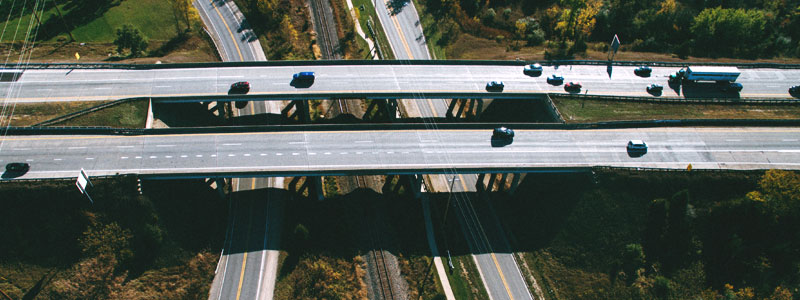Can You Share Fault for an Evansville Car Accident?

If you’re anything like the 45.5 million Americans who hit the road last Thanksgiving, you’re probably planning a nice road trip to have turkey dinner with your friends and family this weekend.
Most Americans traveling for Thanksgiving weekend choose to drive. Only 11 percent make their way home through alternate transportation such as airplanes, trains, buses, and cruises.
This means you’ll be sharing more than just the last drumstick with your cousin this Thanksgiving — you’ll also be sharing the road with millions of other Americans.
Ongoing construction will only make traffic more intense. Remember the intermittent lane closures on the U.S. 41 Twin Bridges over the Ohio River last Thanksgiving? No one was giving thanks for that.
With the heavy traffic, lane closures, and hangry drivers, Evansville car accidents are bound to happen this holiday weekend. In fact, the night before Thanksgiving is the deadliest holiday on our roads, according to the National Highway Traffic Safety Administration (NHTSA).
If you get into an Evansville car accident this weekend, you’ll likely wonder who’s to blame for ruining your holiday road trip. Depending on the circumstances of the accident, the answer may surprise you.
In Indiana, fault isn’t usually either/or — more often, it’s both/and. Although you may share some fault in your Evansville car accident, that doesn’t necessarily mean you’ll have to pay for any injuries or damages on your own.
Understanding fault is essential to make sure you get the compensation you deserve after an Evansville car accident, even if some of the blame lies with you.
Evansville Car Accidents, Fault States, and Comparative Fault

Only twelve states in the U.S. are no-fault states. Indiana is not one of them.
That means that if you’re in a car accident in Indiana, fault matters. The law takes who caused the accident into consideration when determining who should pay for what losses.
Who pays for your losses isn’t usually the at-fault driver, but rather the at-fault driver’s insurance company. Unless the at-fault driver is wealthy enough to personally insure themselves, their insurance company will likely cover your costs.
Comparative Fault
Most car accidents in the world aren’t simple cases of 100 percent fault vs. 0 percent fault. Many factors can go into causing a car accident, including speeding, neglecting to yield, turning at the wrong time, texting, or driving while sleep-deprived or intoxicated.
That’s where Indiana turns to comparative fault. The weight of fault falls differently on each party involved in the car accident.
For example, if an intoxicated driver hits another vehicle at 30 miles about the speed limit, the intoxicated driver is clearly at fault for the accident. However, if the driver of the other vehicle only came to a rolling stop at a four-way stop before proceeding through the intersection, they may be considered to be partially at fault as well.
Comparative fault allocates a percentage of fault to each party and uses that percentage to determine the amount of money each side will be awarded or responsible for.
In our example above, the intoxicated driver would likely get the majority of the blame for the accident. Let’s say 80 percent of the fault was allocated to him. The injured driver who rolled through the stop, on the other hand, would be 20 percent at fault.
That means that the injured driver would be able to make a claim for 80 percent of their medical bills, lost wages, property damage, and other damages through the intoxicated driver’s insurance company, since that 80 percent wasn’t their fault.
You can even recover damages from the other driver’s insurance company if you’re both found to be 50 percent at fault. Once you’re responsible for 51 percent of fault or more, however, you lose the right to recover from the other person’s insurance company. Instead, you would be limited to the insurance benefits under your own policy for property damage and medical payments only.
Accidents Outside of Evansville

If you’re traveling for the holidays, you may get into a car accident outside of Evansville. In fact, because of Evansville’s position near two of Indiana’s neighboring states, you may be wondering whether Illinois or Kentucky are fault states as well.
Although Illinois is a fault state, Kentucky is not. In Kentucky, if you get into a car accident, who’s at fault doesn’t matter. You simply have to seek compensation from your own insurance company.
What matters is not where you’re from, where the other driver is from, or even where your car insurance company is located, but rather where the car accident took place. It doesn’t matter if you’re half an hour from home after a long, 10-hour drive back to Evansville; if your car accident occurs on the other side of the Ohio River, you’ll have to deal with no-fault rules.
Help from an Evansville Car Accident Attorney
We here at Hensley Legal Group hope everyone has a safe and happy Thanksgiving weekend with their loved ones. However, with so many people on the road at once, car accidents are inevitable. For the few whose holiday weekends are marked with frustration, confusion, or even tragedy, Hensley Legal Group is here to help. Our Evansville car accident attorneys will work hard to get you the compensation you deserve. Call our Evansville office today or contact us online for a free conversation about your case.